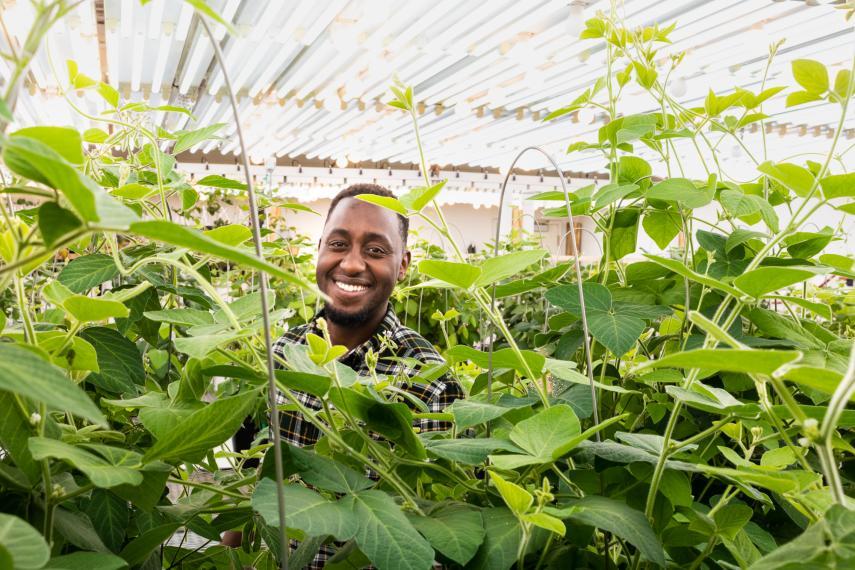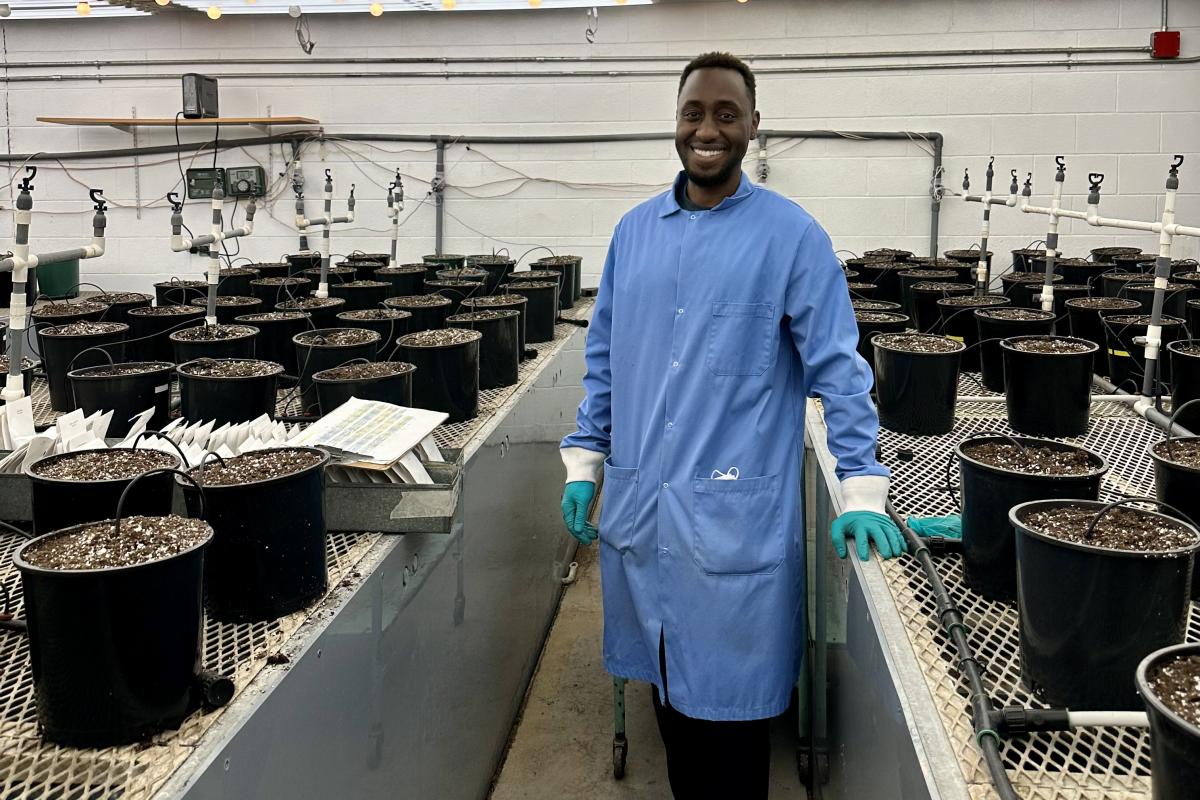OAC PhD Grad Shaping the Future of Global Agriculture at Bayer Crop Science

OAC Plant Agriculture PhD graduate Deus Mugabe's path to becoming a research leader in agricultural science was shaped by a deep-rooted passion for improving global food security. Raised amidst the challenges of food insecurity in Rwanda, Deus's early experiences instilled in him a determination to use science to transform agriculture for the better.
“I wanted to be part of the solution,” Deus explains. “Growing up, I saw firsthand the challenges farmers face, and I knew science could make a difference. My goal has always been to improve crops so that farmers can achieve better results with fewer resources.”
His journey as a Scientist began with a bachelor’s degree in Crop Science from the Philippines, where he honed his understanding of agricultural fundamentals. Driven by a desire to deepen his impact, Deus spent time in rural Rwanda with One Acre Fund, helping smallholder farmers improve their crop production. He later pursued a master’s degree at Washington State University as a Fulbright Scholar, focusing on enhancing related to environmental stress tolerance—an area critical for sustainable agriculture.
It was during a pivotal moment at the National Association for Plant Breeders conference in Guelph that Deus first encountered Dr. Istvan Rajcan, whose expertise and mentorship would profoundly influence his academic and professional trajectory. Inspired by Guelph's reputation for cutting-edge agricultural research and its supportive academic environment, Deus embarked on a PhD journey in Plant Agriculture.

At the University of Guelph, Deus delved into genomic analysis, specifically investigating the genetic mechanisms behind partial resistance to white mold in Canadian soybean varieties. His research not only identified crucial genomic regions responsible for resistance but also highlighted innovative approaches to crop improvement amidst evolving agricultural challenges.
"Understanding the genetic blueprints of crops allows us to develop varieties that are not only resilient to diseases like white mold but also environmentally sustainable," Deus explains, underscoring the dual goals of maximizing agricultural productivity while minimizing ecological impact.
His doctoral studies were complemented by an added specialization in international development, a facet Deus deemed essential for addressing broader political and socio-economic dimensions in agricultural innovation. This interdisciplinary approach equipped him with the tools to navigate complex agricultural landscapes, blending technical expertise with a nuanced understanding of global agricultural dynamics.
“The international development component gave me a more holistic view,” he notes. “It’s not just about the science—it’s about understanding the broader context and the needs of farmers worldwide.”
“The facilities at Guelph were excellent, from the labs to the controlled environment facilities where I could test soybean genotypes under precise conditions,” he recalls. “And my advisor, Dr. Istvan Rajcan, was incredibly supportive. He helped me refine my research and guided me toward opportunities that aligned with my career goals.”

Armed with a wealth of research insights and a diverse skill set spanning genetics, genomics, and international development, Deus Mugabe embarked on his professional journey at Bayer Crop Science. Here, he plays a pivotal role in developing genetically improved corn varieties tailored for diverse agricultural landscapes, including Ontario, Quebec, and the northeastern United States.
"My work at Bayer focuses on translating groundbreaking research into practical solutions that empower farmers and enhance agricultural sustainability," Deus reflects, emphasizing the pivotal role of innovation in shaping the future of agriculture.
Deus Mugabe's career highlights the importance of scientific research and mentorship in addressing global agricultural challenges. From his early days in Rwanda to his current role at Bayer Crop Science, he demonstrates how expertise in plant genetics can drive practical solutions for sustainable food production. His work inspires future scientists to use research and innovation to improve agriculture and support global food security.
“At Bayer, I get to combine science with practical applications,” he says. “We identify market needs, apply cutting-edge genetic tools, and deliver solutions that benefit both farmers and the environment.”